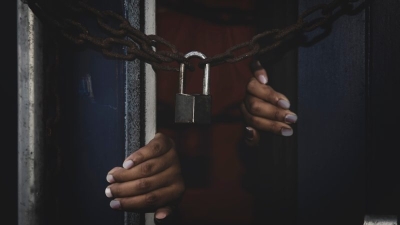Ukrainian refugees struggle in the EU, survey finds

One in three Ukrainian refugees now feel part of their host country’s community, but the same amount also wants to go home, according to the EU’s Fundamental Rights Agency (FRA) ‘Fleeing Ukraine’ report.
A survey conducted in 10 European countries – Bulgaria, Czechia, Estonia, Germany, Hungary, Italy, Poland, Romania, Slovakia and Spain – and surveying 14,500 people identified practical challenges Ukrainian refugees face about language, housing, education, work, cost of living and health.
“The aggression in Ukraine has evoked the largest humanitarian crisis in Europe since the Second World War,” FRA’s director Michael O’Flaherty said.
“The EU and its Member States enacted temporary solutions providing much-needed support. As the war drags on, we need to put in place effective long-term measures that allow host societies and displaced people to adapt to the upheaval resulting from this war,” he added.
Only 10% of Ukrainian respondents over 12 said they could speak the language of their host country fluently. Despite 23% of people attending the language courses, not knowing the host country’s language remains the main reason people drop out of education, do not work, or struggle to get healthcare.
Some 49% feel downhearted and depressed since coming to their host country, whereas 49% of young children have difficulty sleeping and/or concentrating. More than half of respondents have a longstanding illness or health problem, and nearly a third said they have difficulties seeking healthcare due to the language barrier or not knowing where to go.
A total of 33% of Ukrainians said they do not have a paid job, while 48% claimed their new job is below their level of education, with 30% claiming they are exploited at work.
In addition, 33% of women said they could not work because of responsibilities taking care of children or elderly or sick family members. The results suggest that childcare and preschool education access would allow these respondents to enter the labour market.
Regarding education, 59% of children attend education online at a Ukrainian school or study independently with material or support from Ukraine. Most children who go to school in their host country (71%) were not taught any subject in school in the language they mainly spoke at home.
The lack of privacy or a quiet place for children to study is another challenge for Ukrainians. Although 59% pay for their housing, facilities like a toilet or kitchen often have to be shared.
Another 35% said they were not paying rent, however, 18% mentioned doing housework or caring for children or older people in exchange for housing.
Finally, 79% of respondents said they need help to make ends meet.
FRA Director Michael O’Flaherty noted: “The measures provided were designed to be short-term fixes. We are fast approaching a state of long-term emergency. This calls for durable solutions to socio-economically integrate at least some people displaced by the war.”
Despite all the struggles identified by the survey, nearly two out of three Ukrainian refugees feel optimistic about their future.



